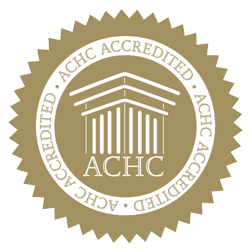Peritoneal Dialysis Treatment Coming Soon!
Written by: Vitality Dialysis

Chronic Kidney Disease (CKD) is a progressive condition that affects millions of people worldwide. While it often develops silently, early detection and proactive management can significantly slow its progression. Stage 1 CKD represents the earliest phase of kidney disease, where kidney function remains normal (eGFR ≥90), but signs of damage, such as protein in the urine, may be present. Understanding the symptoms, risk factors, and strategies for maintaining kidney health is crucial in preventing further deterioration.
Understanding Stage 1 CKD
Stage 1 CKD is defined by a normal glomerular filtration rate (GFR) of 90 or higher, meaning the kidneys are still functioning well. However, evidence of kidney damage, such as the presence of protein in the urine (proteinuria) or structural abnormalities, indicates that the kidneys may be under stress. This stage is often diagnosed through routine screenings rather than symptoms, as most people do not experience noticeable issues.
Symptoms and Early Indicators
One of the challenges with Stage 1 CKD is that it is usually asymptomatic. Many individuals are unaware they have kidney disease until it progresses to a later stage. However, some early indicators may include:
- Slightly elevated blood pressure
- Protein in the urine, detectable through lab tests
- Swelling in the hands or feet due to fluid retention
- Fatigue, though often attributed to other conditions
Because these symptoms are often mild or nonexistent, individuals with risk factors should undergo regular screening to detect kidney damage early.
Risk Factors & Common Causes
Several factors contribute to the development of CKD. Understanding these can help individuals take proactive steps toward kidney health.
Common Causes of Stage 1 CKD
- Diabetes: High blood sugar levels can damage the tiny blood vessels in the kidneys over time.
- Hypertension (High Blood Pressure): Increased pressure on kidney blood vessels can lead to gradual damage.
- Genetics: A family history of kidney disease increases the likelihood of developing CKD.
- Autoimmune Diseases: Conditions such as lupus can cause inflammation and kidney damage.
- Urinary Tract Issues: Frequent infections or obstructions may impair kidney function.
Lifestyle and Environmental Risk Factors
- Smoking: Reduces blood flow to the kidneys, accelerating damage.
- Obesity: Increases the risk of diabetes and hypertension, which are major contributors to CKD.
- Long-Term NSAID Use: Excessive use of pain relievers like ibuprofen can stress the kidneys.
- High-Sodium Diets: Can elevate blood pressure and contribute to kidney stress.
Diagnostic Approaches
Early detection of CKD is critical for preventing progression. Healthcare providers use several tests to diagnose Stage 1 CKD:
- Blood Tests: Measures creatinine levels to estimate GFR.
- Urine Tests: Checks for protein (albuminuria), a key indicator of kidney damage.
- Blood Pressure Monitoring: Identifies hypertension, a leading cause of kidney disease.
- Imaging Studies: Ultrasounds or CT scans may be used to detect structural abnormalities.
For individuals with risk factors, regular screenings are recommended, even in the absence of symptoms.
Management and Prevention Strategies
Since kidney function is still normal in Stage 1 CKD, early intervention can help prevent progression. Lifestyle changes and medical management play a crucial role.
Lifestyle Modifications
- Healthy Diet: Emphasize fresh fruits, vegetables, lean proteins, and whole grains while limiting sodium, processed foods, and excessive protein intake.
- Regular Exercise: Engaging in moderate physical activity helps manage weight, blood pressure, and overall health.
- Hydration: Drinking adequate water supports kidney function and prevents dehydration-related stress.
- Quit Smoking: Eliminating tobacco use improves circulation and kidney health.

Medical Management
- Blood Pressure Control: Target a blood pressure of <130/80 mmHg through medication and lifestyle changes.
- Diabetes Management: Maintaining stable blood sugar levels reduces kidney strain.
- Regular Checkups: Routine visits with a healthcare provider ensure early detection of any worsening conditions.
Patient Empowerment and Resources
Understanding CKD and taking proactive steps toward kidney health empowers patients to maintain their quality of life. Resources such as dietary counseling, kidney health education, and support groups can provide additional guidance and encouragement.
Live Freely with Vitality's Home Dialysis Treatments
If you have been diagnosed with Stage 1 CKD or have risk factors such as diabetes or high blood pressure, now is the time to take action. Vitality Dialysis is here to support you with expert guidance on kidney health, early intervention strategies, and
home dialysis options if needed in the future.
Contact us today to learn how we can help you take control of your kidney health and improve your quality of life.
© Copyright 2024 | Vitality Dialysis Privacy Policy |
Website imagined and executed by RivalMind.
Contact






